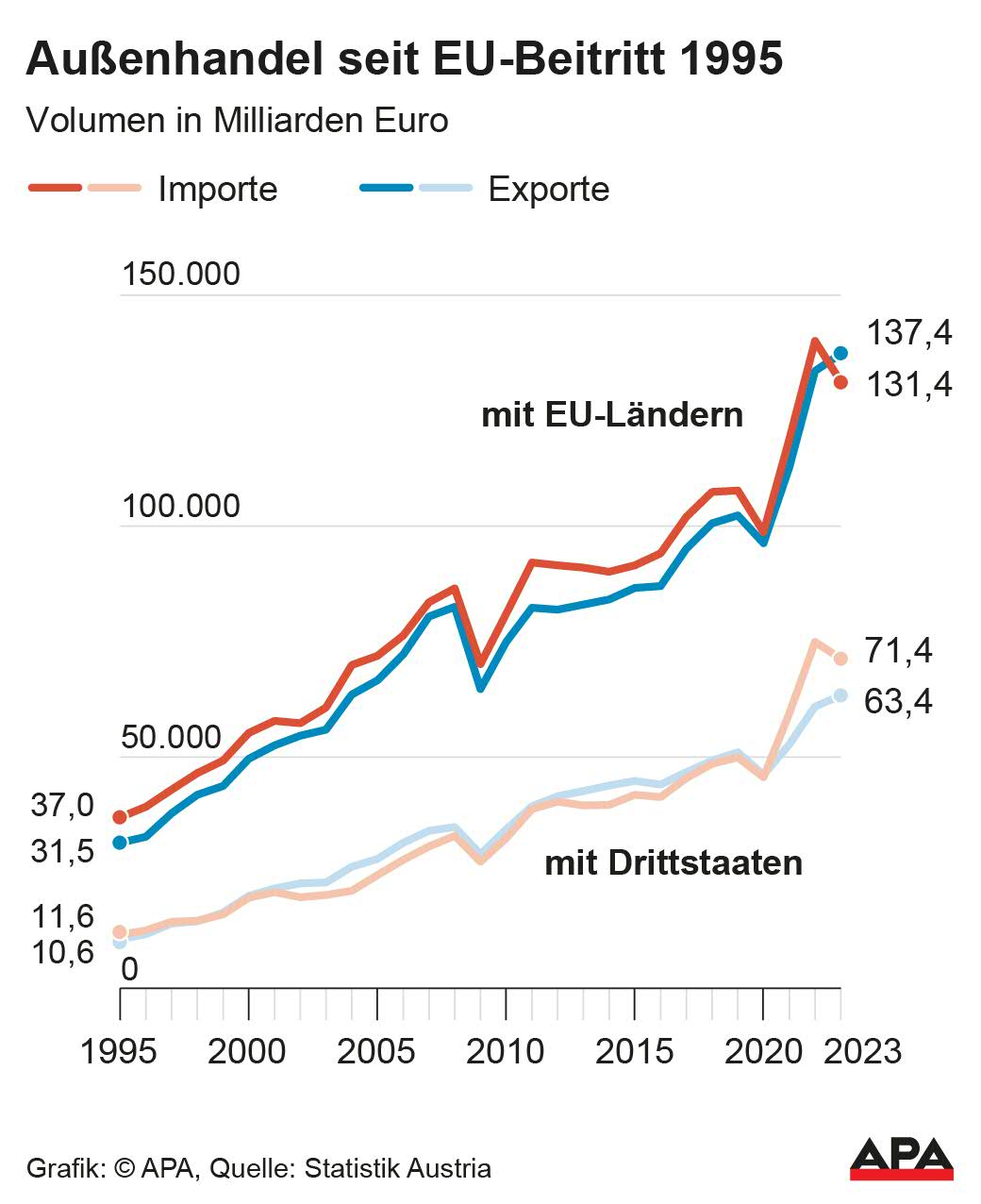Domestic Economy Benefits from EU Single Market and Eastern Expansion

Joining the internal market saves Austrian companies billions of euros in costs for administration, border delays, and the like every year. Numerous, especially medium-sized companies, can act as suppliers for the largest companies in Europe thanks to the internal market. "I don't even want to imagine what additional costs we would have had" without EU membership, says Michael Otter, head of the foreign trade department at the WKÖ.
Exports booming thanks to EU internal market and eastern expansion
A Wifo calculation from five years ago showed that foreign trade contributed 0.7 percentage points to growth per year in real terms thanks to EU membership, recalled Wifo expert Harald Oberhofer. Austria's trade with the EU countries was therefore around 40 percent higher than it would have been without EU membership.

Austria's foreign trade with the countries of today's EU has quadrupled in 30 years. The weight of Germany is still far leading with almost a third of all exports, but has declined somewhat - instead, exports have shifted towards the East. Among the sectors, the food industry and the chemical industry - especially pharma - have gained in importance. The big pharmaceutical companies would hardly have invested so heavily in Austria if the country was not in the internal market, Otter points out another advantage of EU membership. More than a quarter of the investments of foreign companies in Austria were only due to the internal market.
WKÖ still against supply chain law
However, the success story is not automatic. "If we continue as before, without turning screws, then whoever sits there in 30 years will have to say: 'We took a bit of a wrong turn'", says Otter in an interview with the APA. The situation is quite serious. At the level of bureaucracy, things are often demanded "that are actually not possible", for example because the required information is not available. The supply chain law, which demands proof of origin up to the last supplier abroad, is a good idea, but hardly feasible in its current form. Often suppliers in India, for example, cannot provide exact data for their pre-suppliers. For Europe's companies, the requirements from the law are an additional time and cost factor that must first be earned - in addition to the high wage and energy costs compared internationally.
Otter also advocates not being "more papal than the Pope" when it comes to the standards demanded by foreign companies, for example in free trade agreements. The representatives of the partner countries themselves point out that they want to trade on an equal footing - not join the EU. Countries like India or South American states want to trade with Europe - but if the conditions are driven too high, they have no choice but to become even more dependent on China. This in turn would harm the domestic economy and certainly not help the environment.
"Made in Austria" remains important
Otter also sees no signs that "Made in Austria" is disappearing within the framework of EU membership. For the general framework, to open doors to new markets "the power of the EU is priceless". But then products are marketed again at the national level, also by Austria. The trend is currently to produce regionally - for example in China for the Chinese market. Here too, Otter can imagine synergy effects for domestic companies with companies from other EU countries.
(APA/Red)
This article has been automatically translated, read the original article here.





